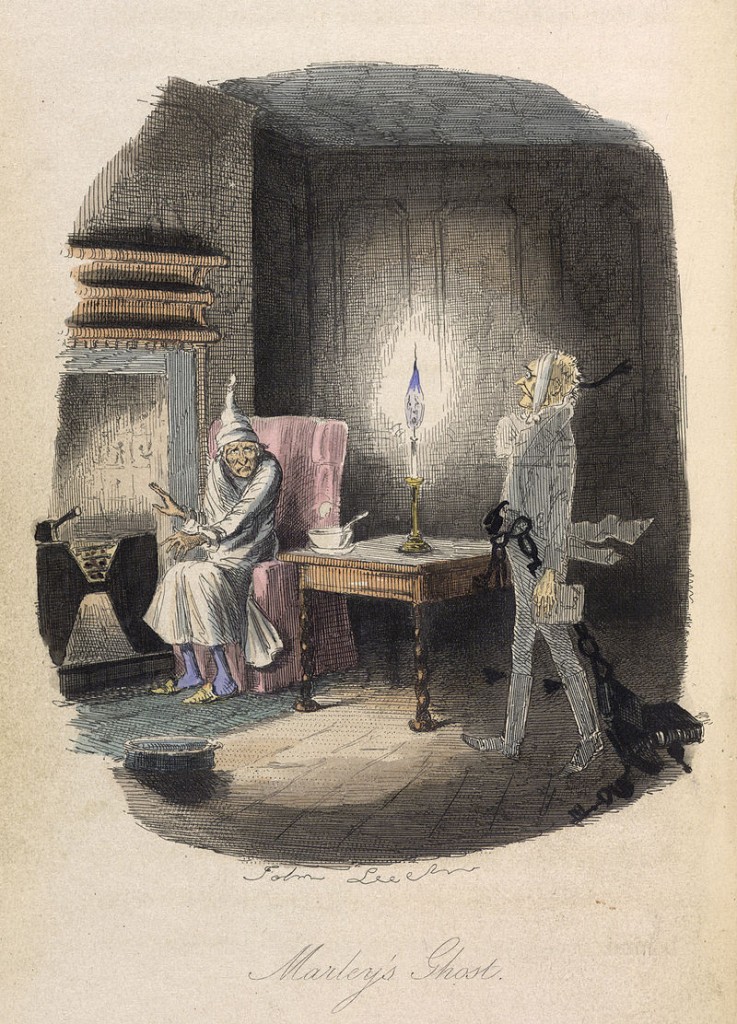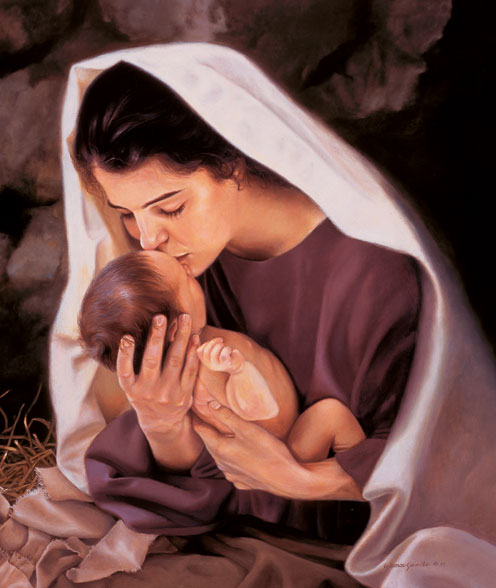Dear Brothers and Sisters,
 A few years ago, Tammy and I attended the play A Christmas Carol based on the novella with that title by Charles Dickens. Dickens wrote the book in 1843, largely to expose corruption in the British government, which favored the wealthy and oppressed the underclass with laws that often sent the poor (including Dickens’ father) to debtors’ prison.
A few years ago, Tammy and I attended the play A Christmas Carol based on the novella with that title by Charles Dickens. Dickens wrote the book in 1843, largely to expose corruption in the British government, which favored the wealthy and oppressed the underclass with laws that often sent the poor (including Dickens’ father) to debtors’ prison.
You’re probably familiar with the book’s main character, Ebenezer Scrooge. Drawing on the life of a man he had known, Dickens portrayed Scrooge as an outrageously selfish man who runs a “counting house” (accountant’s office). Acting on fears held since early childhood, Scrooge became obsessed with wealth, costing him the love of his fiancée and sending him into a downward spiral of selfish loneliness. The name Scrooge has become part of our language for someone who is selfish, miserly and unkind. Here’s how Dickens describes him:
The cold within him froze his old features, nipped his pointed nose, made his eyes red, his thin lips blue, and spoke out shrewdly in his grating voice…. Oh! But he was a tight-fisted hand at the grindstone, Scrooge! a squeezing, wrenching, grasping, scraping, clutching, covetous, old sinner! Hard and sharp as flint, from which no steel had ever struck out generous fire; secret, and self-contained, and solitary as an oyster.

original illustration from A Christmas Carol (1843)
Public Domain via Wikimedia Commons
In Dickens’ story, which begins on Christmas Eve, it appears there is no limit to Ebenezer Scrooge’s selfishness. He has a clerk, Bob Cratchit, a very poor man with a large family. Bob’s young son, Tiny Tim, is crippled from birth, and in Scrooge’s mind, should not be taking food and heat from others. When Bob, who is forced to work in a cold office, attempts to stoke the fire, Scrooge denies him access to the coal.
That afternoon, Scrooge’s nephew Fred invites his uncle to a Christmas party. Scrooge refuses the invitation in the rudest terms. When two men come into the work place asking for a charitable donation, Scrooge throws them out. And when people wish him “Merry Christmas,” he responds with the now infamous exclamation, “Bah humbug!”
No question about it—Ebenezer Scrooge hated Christmas! But then his attitude changed.
After returning home from work on Christmas Eve, Scrooge is confronted by the ghost of his former partner, Jacob Marley, an equally greedy person who claims he has come to Scrooge to spare him from the fate coming his way. He says Scrooge will be visited by three spirits. The first is the “Ghost of Christmas Past” who takes Scrooge back over his life showing him significant events that made him what he is today. The second spirit, the “Ghost of Christmas Present,” takes Scrooge to see Bob Cratchit’s family enjoying Christmas despite their lack of material possessions, then to nephew Fred’s party, and then to a few other Christmas events where Ebenezer starts to see a different side of Christmas. The third spirit, “The Ghost of Christmas Yet to Come,” takes Scrooge to various groups of people who are talking about Ebenezer’s death.
As a result of these visions, Scrooge repents of his self-righteous, cynical, deplorable worldview and mistreatment of others. He sees himself with clarity and sees the love of the Cratchit family he has long mistreated. He notes how well they love despite how badly he treats his employee, Bob, and he is especially touched by Tiny Tim, who toasts to Scrooge’s health even as his own fails him. The story ends with Scrooge, who having experienced a complete change of heart, wishes everyone a Merry Christmas, gives a big raise to Bob Cratchit, donates to various charities and changes the way he views life.
While I don’t usually write about things like ghosts and spirits of Christmas, A Christmas Carol strikes me emotionally for several reasons. As most of you know, for much of my life I did not celebrate Christmas. Perhaps some of you will relate. Not only had I bought into the absurd idea that pagan celebrations of the winter solstice made Christmas a pagan holiday, I also believed Christmas could not be the actual day of Jesus’ birth. As a result, I refused to wish others “Merry Christmas” and generally had a “Bah Humbug” approach to all things related to Christmas. I was more like Ebenezer Scrooge during the Christmas season than I care to admit. I thank God for changing my perspective.

by Liz Lemon Swindle (used with permission)
To the many Old Testament prophecies pointing to the birth of the Messiah, the New Testament Gospels add details about the actual birth, telling about angels making proclamations, heavenly hosts singing praises, shepherds bowing in worship, and wise men from the East giving gifts—all because the Son of God had become the Son of Man!
There is certainly no New Testament justification for having a “Bah Humbug” approach to the celebration of Jesus’ birth. We celebrate because the Light of the Cosmos came to a world of darkness and brought us into his light. We celebrate because, through the Incarnation, God became one of us so we could live for eternity as his beloved children. For all these reasons, during the Christmas season we celebrate the birth of Jesus with joy, enthusiasm and love toward others.
Like Ebenezer Scrooge who rejoiced in his deliverance at the end of A Christmas Carol, I rejoice knowing I’ve been delivered from the bondage of nonsensical arguments and joy-killing legalism—a bondage that, sadly, continues to hold some people in its vice-like grip. I pray you experience the joy of your deliverance daily, and particularly at Christmastime.
Loving and celebrating the birth of our Lord Jesus,
Joseph Tkach
P.S. Tammy, Stephanie, Joe and I wish you and your family a wonderful Advent and Christmas. May God continually remind you just how much you are loved and may your response be one of continual praise and thanks to him.
To read the other letters in my five-part series on Christmas, click on a number: 1, 3, 4, 5.



For some resources related to celebrating Advent, Christmas and Epiphany, see a recent post on The Surprising God blog at http://thesurprisinggodblog.gci.org/2015/12/advent-and-epiphany.html.
Christmas has been a challenge for most of us who did not believe in Christmas and in a way we were very much like Scrooge. I totally agree with the fact that Christmas is about well wishing and blessing others. Dr Tkach merry Christmas to you as well, may 2016 bring you and your family more happiness. I wish the same to all members of GCI worldwide.
I can so identify with what you wrote Joe. Like you, I grew up thinking Christmas was a pagan holiday when in fact it is a Christian holiday that was inserted into a season when pagan observances were rampant. It was intended to bring light into darkness. I well remember the first time I actually paid close attention to the words of O Holy Night. It brought tears. May you and your family have a wonderful and blessed Christmas.
Don & Alix